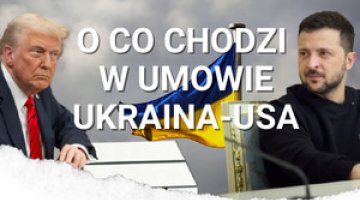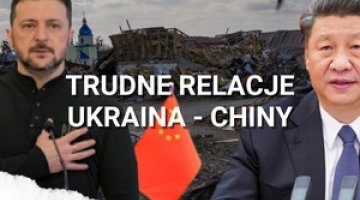Kyiv refuses to make concessions to the separatist ‘republics’
The ceasefire agreement concluded in Minsk on 12 February has not been implemented, either militarily or politically. Armed clashes are continuing, although their intensity has significantly decreased. On 17 March, Kyiv took advantage of the vagueness of many of the agreement’s political points to effectively reject the possibility of negotiating with the separatists. The government has stated that the extension of the powers of local authorities, as well as the other concessions provided for in the Minsk agreement, can take effect only after Kyiv’s sovereignty in these areas has been restored. At the same time, the Ukrainian government considers the separatist-controlled areas to be ‘temporarily occupied’, which absolves Kyiv of responsibility for the situation in these areas. The fact that at the same time, the parliament of Ukraine has turned to the UN and the EU to ask for a peacekeeping mission to be sent to the Donbas, demonstrates that Kyiv is ready for a long-term ‘freezing’ of the conflict under international control, as it will not agree to the separatist ‘republics’ functioning in any way. Kyiv’s actions have met with harsh criticism from Russia and an increase in its diplomatic efforts. If this fails, Moscow may resume the military offensive with the use of the separatist troops, in order to force Kyiv to withdraw from its most recent decisions.
The de facto failure of the ceasefire
Neither the signing of the Minsk agreements, nor the separatists’ subsequent takeover of the so-called Debaltsevo pocket, have brought about a cessation of fighting in the Donbas; but the intensity of the conflict has been significantly reduced, and the situation in the conflict zone should be seen as relatively stable. Although the separatists are undertaking offensive actions, neither side is complying with the provisions of the ceasefire in Minsk, and both sides are accusing each other of provoking clashes and preparing for the resumption of large-scale fighting.
The main areas of military activity – northwest of Lugansk, west of Donetsk and east of Mariupol – have remained unchanged at least since mid-January. The separatists are mainly attacking the positions of the Ukrainian volunteer formations, which, as they incur losses more often than the Ukrainian army’s regular formations, have been returning fire. Contrary to their declarations, neither party has carried out a complete withdrawal of its artillery from the areas identified in the Minsk agreements. Both sides have threatened to redeploy the arms they have allegedly withdrawn back to the demarcation line. Kyiv and Moscow have also been strengthening their forces in the Donbas in anticipation of an imminent collapse of the ceasefire.
It should be assumed that the separatists’ main objective is not only to show that the Ukrainian side has not complied with the provisions of the ceasefire, but also – by mainly provoking the volunteer groups – that Kyiv has no control over them. On the other hand, according to the Ukrainian side, the separatists often shell their own positions, blame the government forces for the shelling, and then use it as an excuse to attack the Ukrainian positions.
The Ukrainian parliament rejects the possibility of dialogue with the separatists
In view of the de facto failure of the ceasefire, and the growing belief that the separatists and the Russian side will inevitably resume the war in the coming months, the Ukrainian authorities have decided to formally implement the Minsk agreement, while actually negating its essence. The Ukrainian president presented parliament with a draft amendment to the unimplemented Act ‘on the specific method [of operation] of local government in certain districts of the Donetsk and Lugansk oblasts’ of 16 September 2014 (which was passed as a result of the first Minsk agreement), as well as several subsequent resolutions, including a formal appeal for a peacekeeping mission run by the UN and EU.
The Act of 16 September 2014 involved the introduction of a number of concessions to the rebel part of the Donbas, which would have been valid for three years starting from the date of the early local elections announced in the Act of 7 December 2014. However, the elections were not held, and Poroshenko even considered repealing the Act. Now parliament has amended it, stating that all the privileges provided for will come into force in the region after the local elections are held – something which could only happen after the restoration of sovereign authority and effective control by the government in Kyiv over the so-called Donetsk and Lugansk People’s Republics – in other words, after the liquidation of these republics and the disarmament of the armed groups there.
This approach to the problem was simultaneously reinforced by the vote on a resolution to designate the territories currently under separatist control as being ‘temporarily occupied’, and declaring that the state of occupation will cease upon the withdrawal from the territory of Ukraine of illegal armed formations, foreign fighters and mercenaries, and armed forces of the Russian Federation with their equipment, as well as the restoration of Kyiv’s control over the entire state border. This resolution, which implicitly refers to the international legal concept of occupation, will be used as a justification for Kyiv’s failure to implement the provisions of the Minsk agreement relating to the restoration of economic ties with the rest of the breakaway regions of the country, the resumption of social payments, etc.
The crown of the 17 March ‘package’ is a resolution appealing to the United Nations and the European Union (but not the OSCE) “to undertake an operation on the territory of Ukraine to maintain peace and security”, that is, to send a peace mission to the east of Ukraine in a formation which Russia and other CIS countries cannot join, and one of whose goals is to establish border controls between Russia and the breakaway parts of the Donetsk and Lugansk oblasts. 265 deputies voted in favour of the amendment to the Act of 16 September (Batkivshchyna and the Radical Party abstained), and Poroshenko signed it two days later. 280 deputies voted in favour of recognising the occupation of the Donbas, and 341 voted for the appeal to create a peacekeeping mission (this motion was also supported by the Opposition Bloc). These votes showed that there is no support in mainstream Ukrainian politics for any appeasement of the separatists and Russia.
The threat to resume hostilities
By undertaking the actions described above, Kyiv has declared that it is not interested in a compromise solution to the conflict; it refuses to recognise the breakaway ‘republics’ in any form, and considers a ‘freezing’ of the status quo and an informal but lasting division of the country (preferably under international control) as the lesser evil. On the one hand Ukraine has reaffirmed its commitment to the two Minsk agreements (mostly for the West’s benefit); but on the other hand it has set conditions preventing them from being implemented. It also seems that Kyiv is willing to risk another confrontation with the armed separatists and the Russian army, which would probably end in failure – but also with a new round of mediation, in which the United States would this time be an active participant (which Ukraine is counting on).
Kyiv cannot agree to the empowerment of the separatist ‘republics’ because such a concession would encourage Russia to initiate and promote separatist initiatives in other regions of eastern and southern Ukraine.
The Ukrainian parliament’s decisions provoked a negative reaction from the Kremlin. Russia regards the acts passed by Ukraine as a flagrant violation of the Minsk agreements. The head of the Russian foreign ministry Sergei Lavrov appealed to the foreign ministers of Germany and France, calling upon them to discuss this issue in the ‘Normandy format’ (Russia, France, Germany and Ukraine),which was initially agreed upon. Lavrov also expressed scepticism about the presence of international peacekeeping forces on the territory of Ukraine, suggesting that the separatists must give their consent to such a solution (the breakaway republics have rejected Kyiv’s recent decisions).
The Kremlin is trying to blame Ukraine for violating the Minsk agreements, and to force Kyiv to hold negotiations with the separatists. Moscow also looks unfavourably upon the establishment of an international peacekeeping force for the Donbas, since that would ‘freeze’ the conflict and limit Russia’s room for manoeuvre with regard to Ukraine. Russia is still aiming to change Ukraine’s political system into a federal arrangement in which the regions have a high degree of autonomy; this would give Russia the possibility to interfere in Kyiv’s policies and take effective action to prevent Ukraine’s integration with the West. The Kremlin is trying to persuade Germany and France to put pressure on Kyiv to uphold Moscow’s demands on the future status of the separatist-controlled territories. We may expect that Kyiv’s actions will cause Russia to strengthen the diplomatic and propaganda instruments it has used so far, and also to ramp up its military pressure, primarily by assisting the separatist forces and supplying them with arms, ammunition and military equipment, and sending them commanders and instructors.





